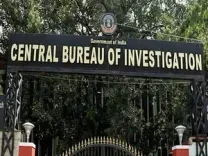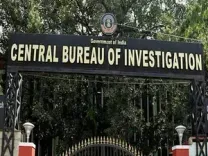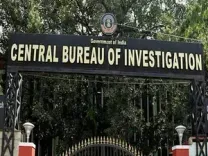Why Were 2 Ex-Bank Officials Sentenced to Up to 16 Years in Jail?

Synopsis
Key Takeaways
- Four individuals were convicted in a bank fraud case.
- Sentences ranged from four to 16 years in prison.
- The total financial loss caused was Rs 1.71 crore.
- Significant fines were imposed alongside prison sentences.
- The case highlights the importance of accountability in banking.
Chennai, July 1 (NationPress) An Additional Special CBI Court in Chennai has imposed sentences ranging from four to 16 years on two former officials of the Bank of Maharashtra and two additional individuals involved in a bank fraud amounting to Rs 1.71 crore, as confirmed by an official on Tuesday.
The Special Judge found the four accused guilty and sentenced them: R. Ramesh, previously the Assistant General Manager of the Bank of Maharashtra; Nirmala, a former bank officer; along with two private individuals, T.S.R. Vasudevan and T. Vetrivel, to Rigorous Imprisonment (RI) ranging from 4 to 16 years.
On Monday, the Special Court also levied a total fine exceeding Rs 1.04 crore against the convicted individuals.
Among them, Vasudevan received the harshest sentence of 16 years' RI along with a fine of Rs 1 crore, while bank officials Ramesh and Nirmala were each sentenced to 6 years' RI with fines of Rs 1.5 lakh each.
Vetrivel was sentenced to 4 years' RI with a fine of Rs 1 lakh. The accused T. Palani passed away during the trial, resulting in the charges against him being dropped.
The CBI initiated the case on February 28, 2003, following a complaint from the Bank of Maharashtra.
The bank alleged that Vasudevan, who owned M/s Lalitha Oils; Palani, who owned M/s Tamil Nadu Marketing; and Vetrivel, posing as a representative for the fictitious firm M/s Vetri Oils, opened a Current Account at the Bank of Maharashtra, Valmiki Nagar Branch in Chennai, under the name of the proprietorship firm.
In collaboration with the accused, bank officials R. Ramesh and Nirmala sanctioned bill purchase facilities beyond their authorized limits.
Vasudevan and T. Palani exploited these facilities by submitting forged bills for a non-existent firm, Vetri Oils, thus misappropriating funds and causing a wrongful loss of Rs 1.71 crore.
Following investigations, the CBI filed a chargesheet on November 25, 2003, against Vasudevan, Palani, Vetrivel, Ramesh, and Nirmala in the Additional Special Court for CBI cases in Chennai.
During the trial, Vetrivel was missing, leading to his case being separated. He later surrendered, and the courts conducted a joint trial for both complaints.
The Special Court ultimately convicted all accused in both cases.






